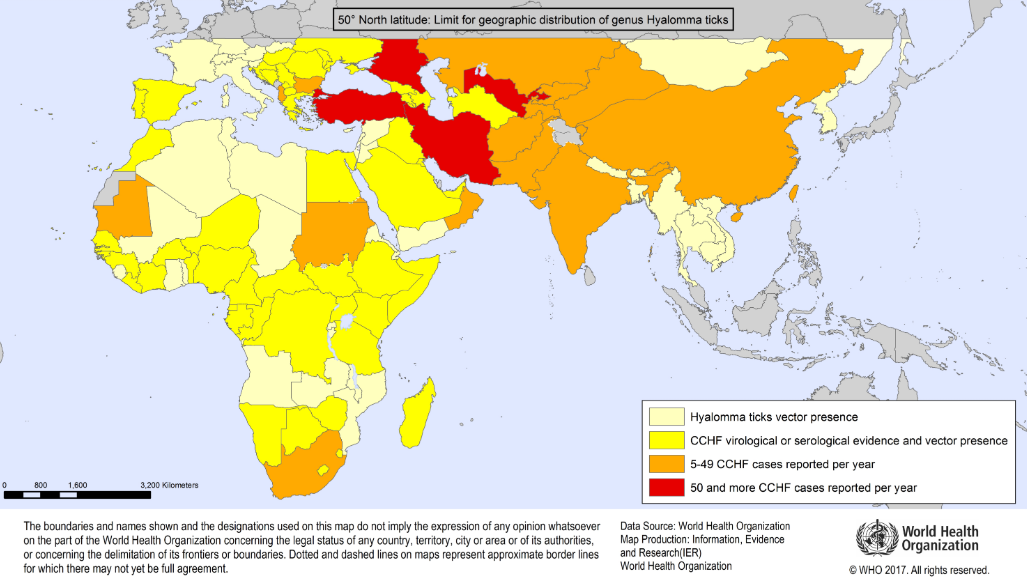
A woman in the UK has been diagnosed with the deadly Crimean-Congo haemorrhagic fever (CCHF) after travelling to Central Asia.
The viral disease is usually transmitted by ticks and livestock animals in countries where CCHF is endemic – across Africa, the Middle East, Asia and the Balkan countries.
This is the third case in the UK of CCHF, with previous cases recorded in 2012 and 2014, both of which didn’t spread.
The woman was diagnosed at Cambridge University Hospitals NHS Foundation Trust and is currently receiving specialist care at the Royal Free Hospital in London.
Dr Susan Hopkins, chief medical adviser at the UK Health Security Agency (UKHSA) said the virus “does not spread easily between people”, adding that the overall risk to the public is “very low”.

She added that the UKHSA was working to contact people who have been in close contact with the woman “to assess them as necessary and provide advice”.
She said: “UKHSA and the NHS have well-established and robust infection control procedures for dealing with cases of imported infectious disease and these will be strictly followed.”
Symptoms of CCHF include fever, muscle ache, dizziness, neck pain and stiffness, backache, headaches, sore eyes and sensitivity to light.
Patients may also suffer from nausea, vomiting, diarrhoea, abdominal pain, and a sore throat, along with sharp mood swings and confusion.
Dr Sir Michael Jacobs, consultant in infectious diseases at the Royal Free London, said: “Our high-level isolation unit is run by an expert team of doctors, nurses, therapists and laboratory staff and is designed to ensure we can safely treat patients with these kind of infections.”
According to the World Health Organisation (WHO), CCHF has a fatality rate of up to 40 per cent, and there is no vaccine for people or animals.







